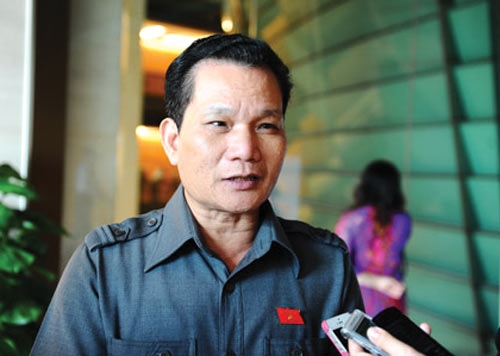.jfif) Opinion
Opinion

" />Bùi Sỹ Lợi, deputy head of the National Assembly (NA)’s Social Affairs Committee, spoke with Nông Thôn Ngày Nay (Countryside Today) about workers’ access to social welfare policies.
 |
Bùi Sỹ Lợi, deputy head of the National Assembly (NA)’s Social Affairs Committee, spoke with Nông Thôn Ngày Nay (Countryside Today) about workers’ access to social welfare policies.
What do you think about the fact that those who move from the countryside to the city to work are being left behind in social welfare policies, have to live in slums and are disadvantaged in many ways?
This fact is so bad that we must consider it in a serious way, in order to seek solutions to ensure social welfare policies for residents, following viewpoints of the Vietnamese Communist Party and Constitution. Workers who emigrate to urban areas face many difficulties. Most of the migrant workers are young and main labour force of their hometowns so their migration creates pressure on the elderly and children in their hometowns.
Migrant workers are facing too many problems in accessing social welfare, especially those of housing, children’s education, etc. Localities cannot manage migration because many migrant workers fail to follow laws and register for their residency at the place where they are staying.
Despite State policies and laws adopted recently on population, civil status, temporary residency registration, social housing, healthcare, health examinations and treatment, the implementation of these regulations at localities has not yet solved ongoing issues.
Research showed that up to 99 per cent of rural residents who move to big cities have no access to support from their new city. What do you think is the cause of this?
There are many reasons. More than 66.1 per cent of these workers are not skilled, while 86.3 per cent of them have to rent rooms. Only 2.9 per cent can afford to buy houses.
Domestic migration also leads to a considerable amount of socio-economic expenses.
The State has recognised domestic migration, with its positive contributions, as an essential contributor to poverty reduction and growth, but there are still worries from the Government on its negative impacts - especially those from spontaneous migration.
Spontaneous migration puts more pressure on already overloaded infrastructure systems and public services, making the management of social safety and order difficult.
The Government set up a residency registration system to control migration, but the system makes it difficult for workers to access employment opportunities, social services such as healthcare and education as easily as locals.
Much research proves that a majority of workers who move to the city temporarily will settle down in urban areas, so their lack of access to social services and opportunities to join social activities turns them into an increasingly large part of urban poverty and hunger.
Workers’ movements are a hot topic and are regarded as the consequence of urbanisation and industrialisation. Why are there still so few policies on movement between cities and rural areas?
In fact, the Vietnamese Party and State always attaches importance to ensuring interests and creating employment for labourers in general and this type of worker in particular. It is not a short-term fix. It needs a comprehensive solution and a long-term strategy. The point is that we must implement it in a comprehensive and positive way to make changes in awareness and call for involvement from sectors of all levels and political and social organisations.
According to current regulations, if there is any trouble, migrant workers must look to local authorities for help. They must register for residency and seek help from local authorities.
What measures will be taken in the upcoming time to help these workers access social welfare policies?
The NA’s Social Affairs Committee monitored and submitted specific policies. The Government has added domestic migration policies but they are not comprehensive. The laws regarding population, social housing, education and public healthcare have been adjusted quite comprehensively. However, there must be more supervision of the NA and people’s councils at all levels to make proposals to review the matter comprehensively. — VNS




